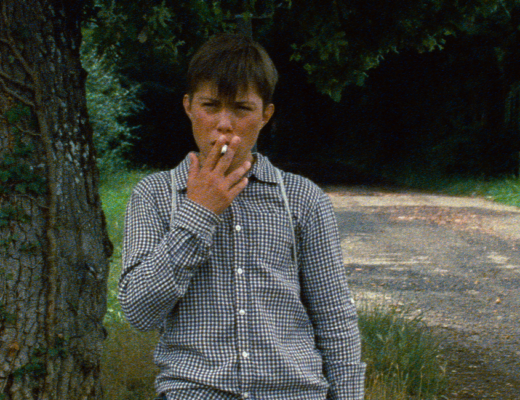Ryusuke Hamaguchi’s intimate epic of friendship between women, Happy Hour, was my favorite film of 2016, so needless to say Asako I & II, which premiered in competition at Cannes last May, was eagerly anticipated. Adapting an acclaimed novel by Tomoka Shibasaki, Hamaguchi initially seems to scale back the formal ambitions and narrative breadth of Happy Hour, retreating to a more recognizable mode of wistful romantic drama. But even in the context of a more conventional two-hour runtime, his temporal interests remain unique. Ellipses and surreal elements intertwine in a charmingly low-key, deeply felt evocation of a young woman’s first love — a man who manifests as if by fate before suddenly disappearing, only to reappear years later, in a different form. Hamaguchi’s intuitive direction of actors (owing to his theater background) flourishes in Asako, particularly in the case of Masahiro Higashide, who’s given the difficult task of playing both the shaggy, itinerant Baku and the clean-cut salaryman Ryohei. That Higashide is not inescapably recognizable as Baku when he reappears as Ryohei (except to Asako, of course) is a credit to the actor’s physical work, his stiff-backed posture a striking contrast to Baku’s slouchy, shuffling gait.
Erika Karata’s Asako is restrained almost to a fault, but the actress’ steady, assured performance is its own kind of feat; her transformation occurs beneath the surface, drawing out the character’s quiet determination. Hamaguchi also continues to demonstrate a wonderful feel for the mundane, with this love story developing in the spaces of modest apartments, small cafes, and unremarkable business places. But there is also room for dreamy flights of feeling, as when Asako and Baku’s first moment of eye-contact plays-out in slow motion, firecrackers going off between them. It’s seemingly meant as nothing more than happenstance that the two meet right where some kids are messing around with explosives, but Hamaguchi lets the experience of the moment carry him away from his naturalism. Throughout Asako I & II, Hamaguchi alters his form in subtle ways, lending credibility to his shifts into subjectivity, and in so doing proves himself a true romantic of the cinema.
Published as part of Before We Vanish | Issue 5.







